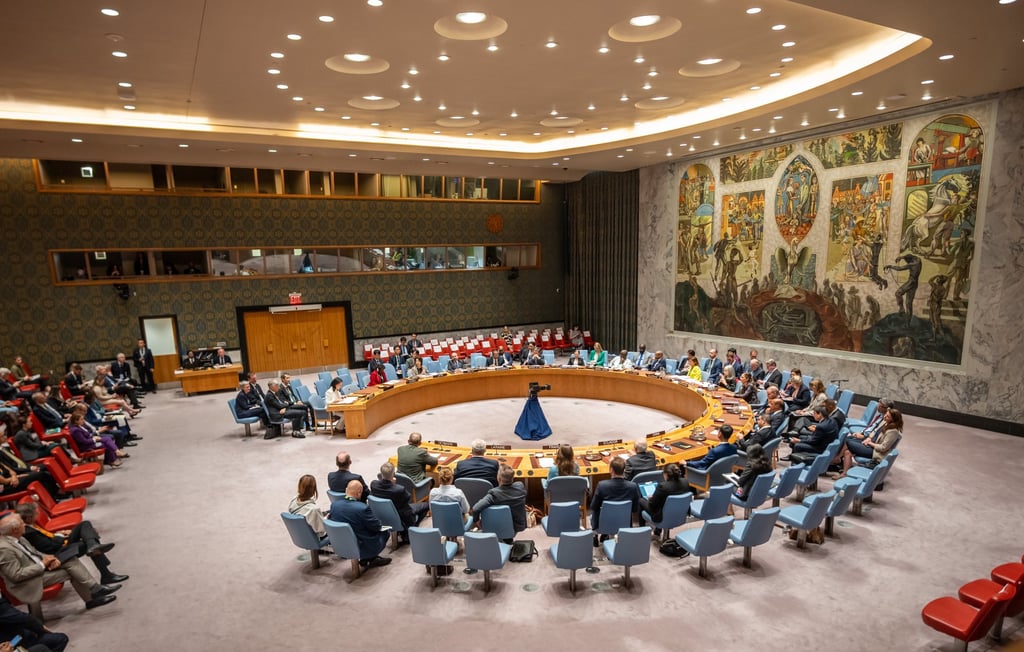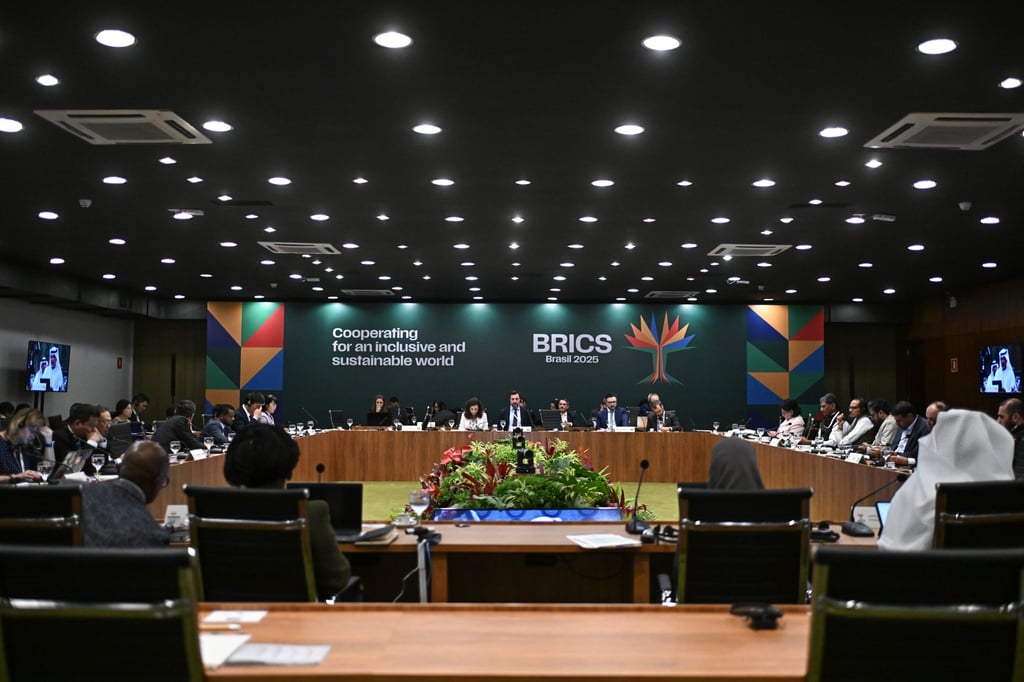With trust in Western-dominated institutions waning, the Global South is rallying for a new order that reflects its diverse voices
By Zuraidah IBRAHIM
Contact us: info@strategic-culture.su
As speakers at the recent Antalya Diplomacy Forum in Turkey sought to galvanise the international audience to respond to the crumbling of international institutions and two grinding wars, there were frequent references to the “Global South”.
The appeal for solidarity among the countries beyond the advanced industrial West is understandable. Trust in a global order dominated by the United States and Europe has eroded in the face of their wilful failure to end the wars in Ukraine and Gaza. Now, the chaos and confusion wrought by the Trump administration’s tariff tantrums have forced even friends of the US to rethink their ties.
US-dominated international institutions such as the United Nations and the World Trade Organization have been a disappointment. Many countries on the periphery have long dreamt of a new order that is fairer to what has been accurately termed the “majority world”. That spirit resulted in the Non-Aligned Movement, which unfortunately petered out after the end of the Cold War and the embrace of neoliberal pro-market reforms by most countries.
The Global South is now a popular, affirming self-image and a rallying cry for nations once called the Third World or least developed countries (LDCs). The term originates from the fact that the US and Europe are in higher latitudes, while the nations they lorded over were mostly to their south. Unlike the LDC label, Global South is often worn as a badge of pride, alluding to cultures to be proud of, and an unyielding determination to chart one’s own course.
The Antalya forum last weekend was a gathering of more than 6,000 participants mostly from Africa, the Middle East, Asia and the less wealthy countries of Europe. Several panels emphasised the need to meaningfully reform the membership of the UN Security Council beyond the five current permanent members and to drastically change the rules of the General Assembly itself.

A UN Security Council meeting during the 79th General Debate of the UN General Assembly last year. Photo: dpa
With the institution marking its 80th year this October, the UN itself has a reform agenda filled with many ideas, but just which will get approved and implemented remains to be seen.
The failure of the UN to stop the two wars as the two permanent members – the US and Russia – repeatedly wielded their veto powers in the Security Council lies at the core of all the frustrations with the institution.
Throughout the panels at Antalya, this much was clear. No one was enamoured with the UN, even though their representatives were everywhere. It was like a love-hate fest.
There have been calls to enlarge the Security Council to at least 25 members, up from the current 15, with 11 permanent members rather than the present five.
Brazil, Japan, Germany and India are among those talked about as deserving permanent seats. China has balked at the idea of India gaining permanent membership, which is just one of the many indicators of the limits to Global South solidarity.
Major advances in Global South cooperation will depend on countries rising above their internal enmities and domestic problems
It carries a strong sense of the injustices of colonialism, which are impossible to forget when the West shows it is still willing to use its disproportionate wealth and military prowess to enable dispossession and genocide. Thus, the UN General Assembly has been powerless to end Israel’s blatant war crimes in Gaza and the occupied territories of the West Bank.
Similar paralysis can also be found at the World Trade Organization, an outfit whose very purpose was to solve the intractable trade problems we are facing now but has the weight lighter than a feather to knock any sense into anyone.
If the Global South is held together mainly by its antipathy towards the West, the question is whether that’s a strong enough bond to allow it to get things done. In today’s geopolitics, the enemy of one’s enemy (the West) is not actually a friend. There remain many cleavages among middle powers in the Global South.
Even at Antalya, that much was evident. The event is an instrument of Turkey’s soft power, which meant that not all its neighbours were featured prominently. So Saudi Arabia, for example, barely had any representation.
Similar contradictions afflict Brics, the grouping whose first summit brought together Brazil, Russia, India and China in 2009 and enlarged to include South Africa in 2011. Five more countries, from Western Asia and Africa, joined in 2024. The United Nations was also a participant. Another 13 countries from Asia, Africa and Latin America were added as partners at last year’s summit.

Representatives of Brics countries take part in a meeting of ministers of the agriculture working group in Brazil on Thursday. Photo: EPA-EFE
One role of such forums is to facilitate bilateral dealings with countries that the US has declared persona non grata, such as Russia and Iran. The 2024 summit also came up with the idea of Brics Pay, a decentralised cross-border payment messaging system that would bypass the Swift network that the US has used to enforce sanctions against Russia.
Brics, along with the Shanghai Cooperation Organisation, was hopefully talked about at the Antalya Forum as platforms for the non-West to participate in globalisation on its own terms.
American development economist Jeffrey Sachs, a vocal champion of the Global South, said at the conference that reform of the global order had been delayed because the US and Europe continued to cling to “outdated prerogatives built into international institutions and to their outdated mindsets”. In a subsequent article, he wrote: “The multipolar world will be born when the geopolitical weight of Asia, Africa, and Latin America matches their rising economic weight.”
But major advances in Global South cooperation will depend on countries rising above their internal enmities and domestic problems. “We’re trying to mend a badly torn fabric and the tailors are all too focused on their own holes or blaming others for them and not seeing the bigger picture,” one politician told me.
Major advances in international relations tend to be born in crisis. The United Nations and European Community were direct outcomes of the horrors of World War II.
Paradoxically, Donald Trump’s spectacularly irrational and irresponsible international conduct may be just what the Global South needs to get its act together.
Original article: South China Morning Post








